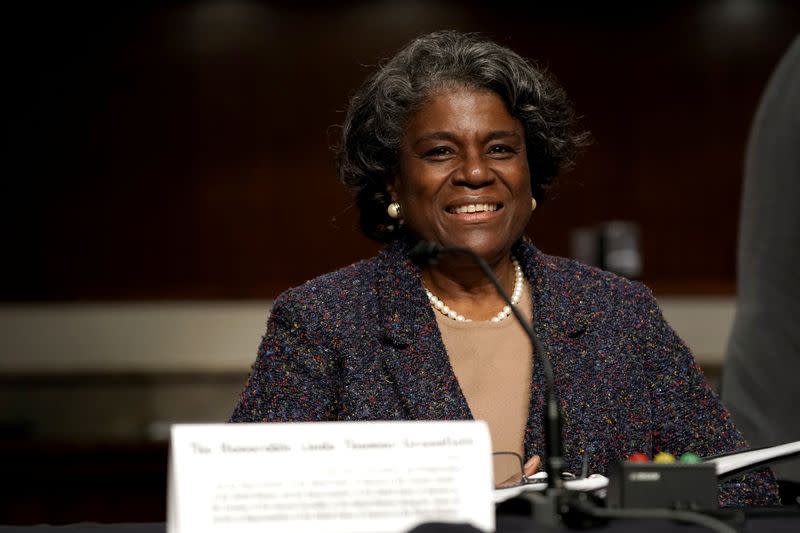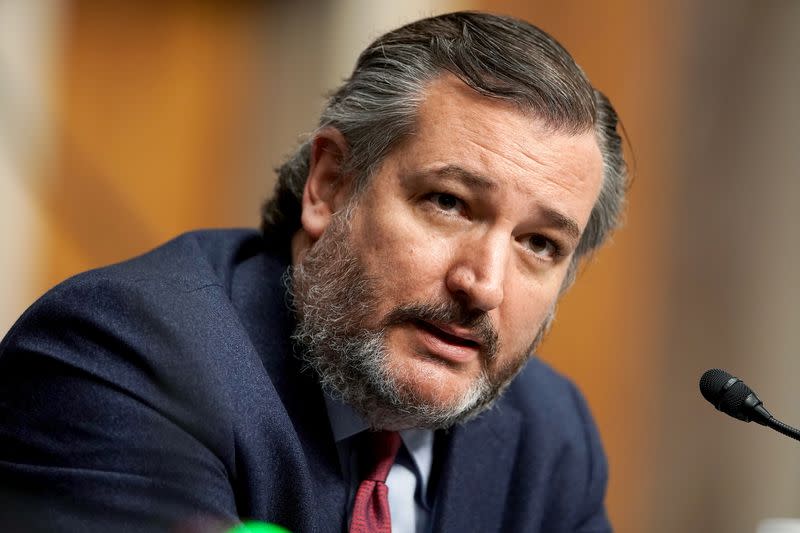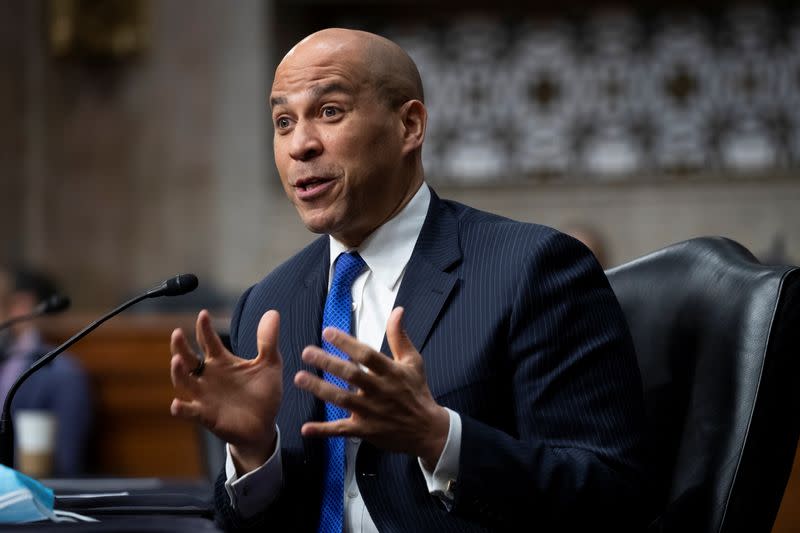Biden U.N. nominee pledges to work 'aggressively' against Chinese influence
By Michelle Nichols and Patricia Zengerle
NEW YORK/WASHINGTON (Reuters) - U.S. President Joe Biden's nominee for ambassador to the United Nations stressed on Wednesday the importance of U.S. re-engagement with the 193-member world body in order to challenge efforts by China to "drive an authoritarian agenda."
Beijing has been pushing for greater global influence in a challenge to traditional U.S. leadership. Tension between the two superpowers hit a boiling point at the United Nations last year over the coronavirus pandemic.
At her U.S. Senate confirmation hearing, veteran diplomat Linda Thomas-Greenfield pledged to work "aggressively against Chinese malign efforts in New York."
"We know China is working across the U.N. system to drive an authoritarian agenda that stands in opposition to the founding values of the institution - American values," she told the Senate Foreign Relations Committee.
"Their success depends on our continued withdrawal," she said, alluding to former president Donald Trump's administration, which spurned and pulled back from multilateral institutions. "That will not happen on my watch," she said.
Thomas-Greenfield looked likely to be confirmed by the Senate within days after both Democratic and Republican senators praised the 35-year Foreign Service veteran who has served on four continents, most notably in Africa.
Several senators asked her about a 2019 speech that they considered favorable to Beijing. "I am not at all naive at what the Chinese are doing," she said. "I have called them out on a regular basis."
Thomas-Greenfield said the State Department is reviewing a Trump administration determination that China has committed genocide by repressing Uighur Muslims to make sure it sticks because "all of the procedures were not followed."
China has been widely condemned for its complexes in the remote Xinjiang region, which it describes as "vocational training centers" to stamp out extremism. It denies accusations of abuse.
U.S. RE-ENGAGEMENT
"What is happening with the Uighurs is horrendous and we have to recognize it for what it is," Thomas-Greenfield said.
Thomas-Greenfield, who was a U.S. diplomat in Rwanda during the 1994 genocide, has previously spoken about facing a "glazed-eyed young man" who had mistaken her for a woman he had been sent to kill.
"So I know what it looks like. And I know what it feels like. And this feels like that. And we have to recognize it for what it is," she said on Wednesday of the situation in Xinjiang.
If confirmed, she will join counterparts with decades of experience in diplomacy from Britain, France, China and Russia which, along with the United States, make up the U.N. Security Council's five permanent veto-wielding members.
She said the United States broadly has to re-engage with its allies and adversaries and criticized the Trump administration for trying to "go it alone," particularly on its failed efforts to get North Korea to give up its nuclear weapons program.
"Re-engaging with South Korea, with Japan, as well as with China and Russia - particularly to push for their respect of the sanctions regime against North Korea - is going to be really important," she said.
She said Washington needed to pay its dues to the world body "so that we can continue to exert our influence." The United States, which is the largest U.N. contributor, is currently in arrears about $600 million for the regular budget and about $2 billion for the peacekeeping budget.
(Reporting by Michelle Nichols and Patricia Zengerle, Editing by Mark Heinrich and Rosalba O'Brien)

 Yahoo News
Yahoo News 




